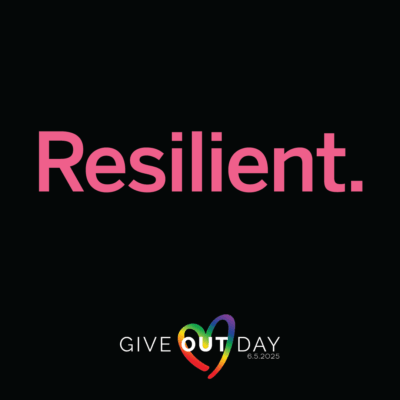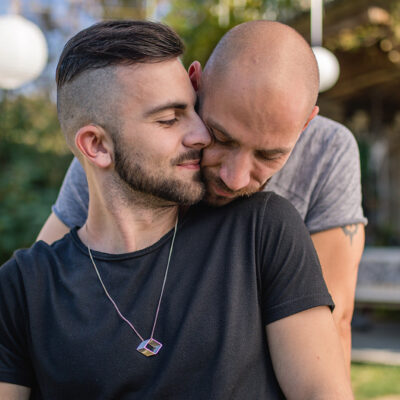“There’s anxiety, and fear”: How HIV long-term survivors are processing the current political moment

Long-term HIV survivors remember the early days of the HIV epidemic all too well. They remember the fear of an unknown disease causing gay men to suffer and die much too early. The anxiety, of not knowing if you, or your friends, or your lovers, would be next. The grief, caused by loss upon loss. And the anger, at a government and society turning its back on your community’s suffering.
These days, much has changed. And many long-term survivors have hope for a future when we reach the end of the HIV epidemic. But navigating the uncertainty of the current political moment has brought back many of the feelings that long-term survivors have tried to leave in the past.
“There’s so much anxiety, and so much fear,” said Vince Crisostomo, a long-term HIV survivor and SFAF’s director of aging services. “And that goes for folks who are both positive and negative–because you have to remember that folks who are HIV negative but part of our community went through the same kinds of loss. They also saw their friends die.”

Crisostomo named many current events that have reminded him of the early days of the AIDS epidemic–when stigma, discrimination, and apathy kept the federal government and other leaders from adequately responding to an emerging public health crisis. Now, more than 40 years later, we have the tools, resources, and knowledge to respond. Yet our systems of care and the people we serve are under attack and being erased.
“The government is defunding critical programs. They’re erasing web pages devoted to HIV research and data. They’re dismantling and defunding our health systems and safety net systems. They’re trying to erase our transgender communities. They’re trying to take away our lived experiences,” said Crisostomo. “The damage that they have already done to the progress we’ve made–it’s awful.”
As director of a popular community program at SFAF, Crisostomo keeps a close eye on how the people over age 50 in his program are coping. And, he and his other program leaders find innovative ways to keep his group members engaged, and out of the social isolation that can be so damaging to both physical and mental health.

“People want, and need, a place to belong,” said Crisostomo. “That’s why we always try to do things that not only pull people out of social isolation, and get them involved in the community, but also build hope and positive feelings.”
In addition to social events like community dinners, virtual check-ins, and Saturday morning coffees, Vince encourages group members to get involved in local volunteering and activism. Many in the group are active participants, and leadership members, of SFAF’s HIV Advocacy Network. With feelings of fear and anxiety that people have around the current administration, and the defunding of HIV programs, Crisostomo encourages them to get involved, engaged, and do something about it.
“My participation in HAN gives me an opportunity to advocate for the new and ever-growing needs of others who made it through the devastation of the early years of the AIDS pandemic,” said Paul Aguilar, long-term survivor community liaison at SFAF. “What’s even better is it allows me to do so alongside a slew of young, fierce warriors who are dedicated to the cause! What I really enjoy is when I can encourage one of my peers from the Elizabeth Taylor 50-Plus Network to become involved in HAN–making it a truly intergenerational program as well.”

“The HIV Advocacy Network benefits immensely from the long-term survivors who are part of our advocacy efforts,” said Ande Stone, director of community mobilization & policy. “Having lived through difficult and hostile political environments already–and having fought hard for recognition, funding, and medical advancements–they know how to push our movement forward. And they enrich our efforts with the experiences and knowledge that they bring. We do stand on the shoulders of all of the giants in activism that have come before us.”
On June 12, group members will rally at San Francisco’s City Hall for HAN’s “Rally and Day of Action,” completing advocacy training, marching to City Hall, holding a Rally on the steps of City Hall, and meeting with the Board of Supervisors to advocate for housing and healthcare in the city budget.
Crisostomo is also working on a long-term survivors anthology project in partnership with activist Cleve Jones, The Reunion Project, and writer Tim Murphy. The project involves interviewing HIV long-term survivors, and creating an anthology of oral and written histories.
“It’s so important that we tell these stories,” said Crisostomo. “We lose community members every year–and we don’t want to lose a chapter of our history.”










